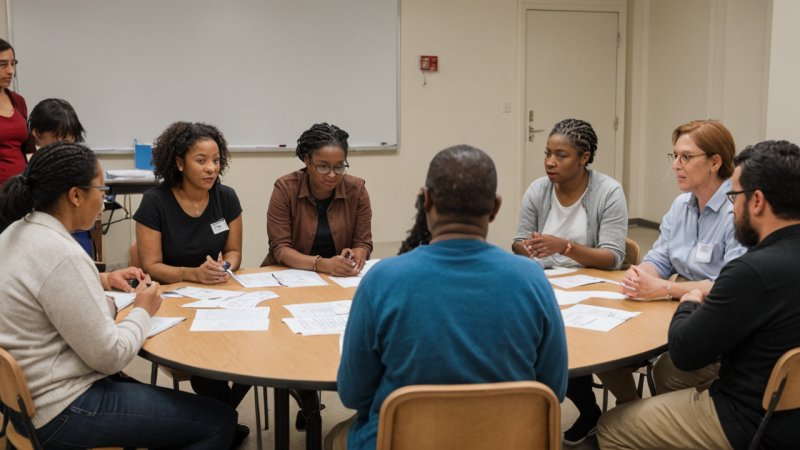1. Identify the Purpose of the Workshop
Before planning your workshop, it’s crucial to determine its purpose. Are you aiming to raise awareness, provide resources, or create a safe space for discussion? Clearly defining your goals will guide your planning process.
2. Gather a Team of Supporters
Organizing a community workshop is a team effort. Recruit volunteers or professionals who are passionate about mental health. They can help with planning, logistics, and outreach, making the process more manageable and effective.
3. Choose a Relevant Topic
Select a topic that resonates with your community's needs. Consider focusing on issues like anxiety management, coping strategies, or the importance of mental health in schools. Tailoring the topic to your audience will draw more participants.
4. Find a Suitable Venue
Location matters. Choose a venue that is accessible and comfortable for participants. Consider community centers, schools, or local libraries. Ensure the space is equipped with necessary resources, such as seating and audio-visual equipment.
5. Create Engaging Materials
Develop informative materials that participants can take home. This could include brochures, fact sheets, or resource lists. Make sure the information is clear, concise, and relevant to the workshop topic.
6. Promote the Workshop
Utilize various channels to promote your workshop. Use social media, community bulletin boards, and local newspapers to spread the word. Engaging visuals and a clear message will help attract attendees.
7. Invite Guest Speakers
Consider inviting mental health professionals or advocates to share their expertise. Their insights can provide valuable information and encourage open discussions among participants.
8. Foster an Inclusive Environment
Create a welcoming atmosphere where everyone feels comfortable sharing their experiences. Encourage participants to respect each other’s opinions and maintain confidentiality to build trust within the group.
9. Incorporate Interactive Activities
Engagement is key to a successful workshop. Include activities such as group discussions, role-playing, or mindfulness exercises. These activities can help participants connect and apply what they learn.
10. Gather Feedback and Follow Up
After the workshop, solicit feedback from participants to identify areas for improvement. Follow up with attendees to provide additional resources and support, reinforcing the workshop’s impact.
Summary: Organizing community workshops on mental health requires careful planning and collaboration. By following these ten steps, you can create an impactful event that raises awareness, fosters dialogue, and supports those in need.






